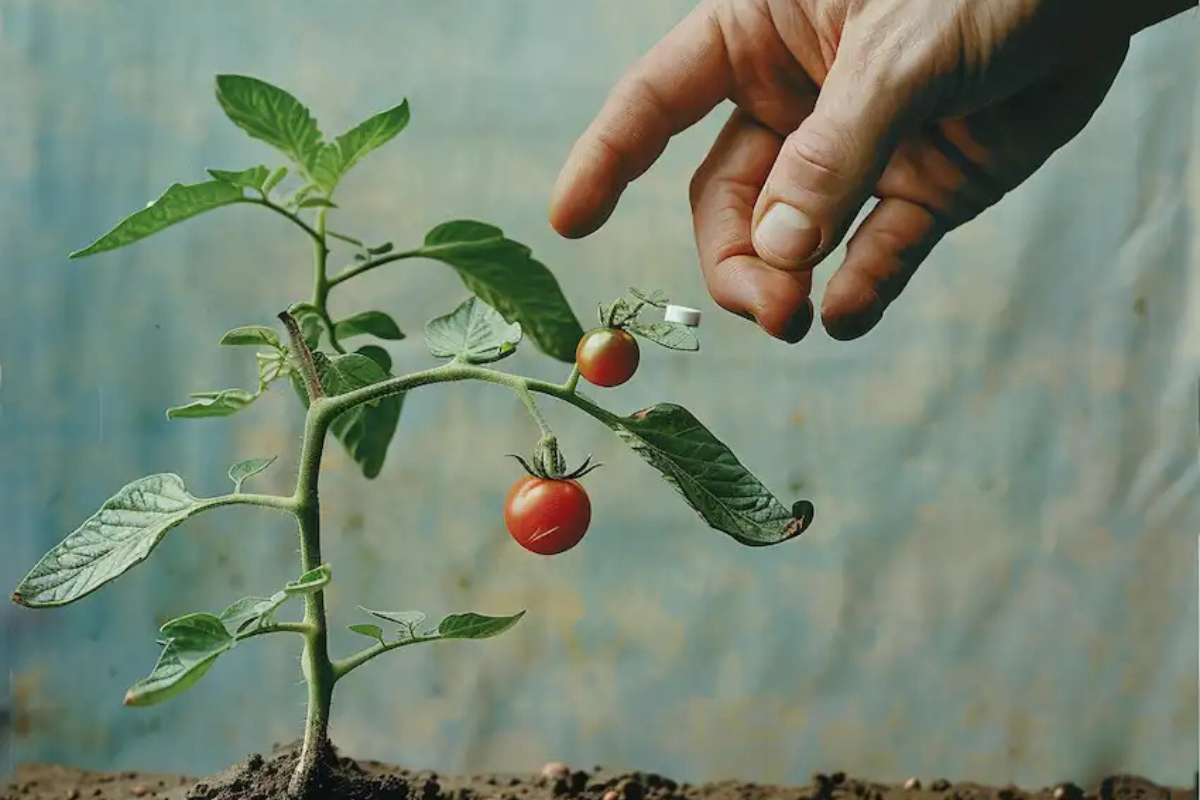While many gardeners are familiar with the idea of using aspirin in water to prolong the life of cut flowers, recent studies reveal that aspirin can do much more—it can significantly boost the growth and resilience of vegetable plants.
A study conducted by the University of Rhode Island demonstrated the remarkable benefits of aspirin (acetylsalicylic acid) for vegetable crops. Researchers dissolved four aspirin tablets in four liters of water and applied the solution to a group of vegetable plants every three weeks throughout the growing season. By the study’s conclusion, plants treated with aspirin showed improved growth, greater strength, and increased resistance to common pests and diseases.
This treatment was particularly effective for solanaceous vegetables—tomatoes, peppers, and eggplants—which are often vulnerable to fungal infections and other pathogens. The results suggest that aspirin can be a simple, cost-effective strategy for improving garden health.

Here are several ways you can use aspirin to enhance your vegetable garden:
1. Rooting Aid
Before planting vegetable cuttings, soak them in a solution of distilled water and dissolved aspirin for several hours. This treatment helps disinfect the cuttings and encourages stronger, healthier root development, making it easier for new plants to establish themselves.
2. Growth Stimulant
Aspirin can act as a growth stimulant. To promote vigorous growth and enhance plant immunity, dilute aspirin in water and spray the solution onto your vegetable plants every few weeks. This strengthens the plants, making them more resilient to diseases and pests.
3. Seed Treatment
Soaking seeds in a mixture of water and aspirin before sowing can improve germination rates and increase seedling vigor. This simple step can give your plants a strong start and set them up for a healthy growing season.
4. Soil Amendment
For a direct approach, place aspirin tablets into the soil around your vegetable plants. Regular watering will activate the aspirin’s beneficial properties, providing a slow-release source of growth support and disease resistance directly to the roots.
5. Increased Resistance to Diseases
Aspirin has been shown to trigger a plant’s immune response, helping it fight off common diseases and pests that might otherwise weaken your crops. This makes it particularly useful for vegetables susceptible to fungal infections, like tomatoes and peppers.
Benefits of Aspirin Treatment:
Incorporating aspirin treatment into your gardening routine is a simple, low-cost strategy to support healthier and more productive plants. It can help boost growth, enhance resistance to diseases, and promote overall garden vitality.
Using aspirin in your vegetable garden is an effective, eco-friendly solution that can transform the way you grow your crops. The results can be seen quickly and could lead to healthier, more robust plants throughout the growing season.
Give it a try and witness the transformative effect of aspirin on your vegetable garden.
